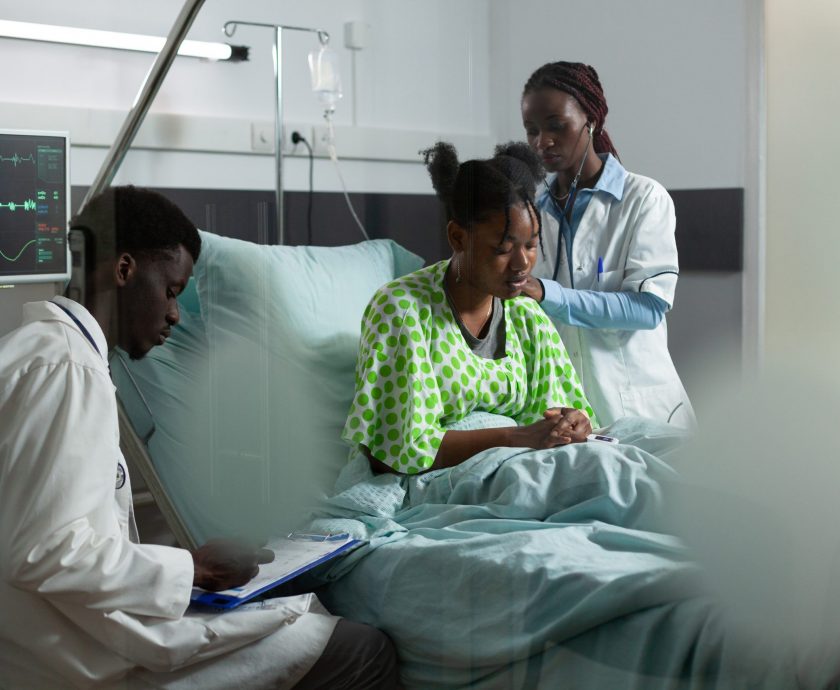Childhood Cancer vs Teenager Cancer
“Children are like uncut diamonds; they are the hands by which we reach for heaven”. Every year, an estimated 400,000 children and adolescents between the ages of 0 and 19 are diagnosed with cancer worldwide. In Mauritius, 1.1% of cancer cases occur in children aged 0 to 14, resulting in an estimated 20 deaths. While childhood and adolescent cancers are rare diseases, they are not impossible. During the month of September, the world observes Childhood Cancer Awareness, serving as a reminder to us, as adults, to redouble our efforts in raising awareness and advocating for childhood and adolescent cancer research. Our little ones and our young adults are the true heroes, and it is our collective duty to join forces and protect these angels. Additionally, it is important to raise awareness about adolescent cancer and how it differs from childhood cancer.’
1.1% of cancer occurs in children of 0 to 14 years old”
Cancer occurs more frequently in adolescents and young adults aged 15 to 39 years than in younger children, although the likelihood of it is not zero. The main difference between childhood cancer and teenage cancer lies in the age at which they occur and the specific types of cancer that are more likely to occur in each age group. Childhood cancer affects children aged 0 to 14 years old, with cancers typically diagnosed within the first 14 years of their lives. On the other hand, teenage cancer occurs in adolescents aged 15 to 19 years old, who are more likely to develop cancer types that can be diagnosed in both children and adults.
Types of Cancer In Children and Teenagers
The most common cancer types in children and teenagers vary depending on age groups. Among children, ages 0 to 14, the most common types of cancer are leukemias, brain and other CNS tumors, lymphomas, neuroblastomas, kidney tumors, and malignant bone tumors.
Among adolescents, ages 15 to 19, the most common types of cancer are brain and other CNS tumors and lymphomas, followed by leukemias, thyroid cancer, gonadal (testicular and ovarian) germ cell tumors, and malignant bone tumors.
Adults are not the only victims of cancer”
Symptoms of Cancer In Children and Teenagers
Just like in adults, cancer symptoms vary based on the type of cancer and the stage in children and teenagers. Some common symptoms include:
- Unexplained weight loss.
- Persistent fatigue, weakness, and lack of energy that do not improve.
- Ongoing or severe pain in a specific area of the body, which may not be associated with any injury or other identifiable cause.
- Noticeable lumps or masses.
- Changes in bowel or bladder habits.
- Persistent infections.
- Unusual changes in the skin, such as new moles, skin discoloration, or persistent rashes, may be a sign of a skin cancer or an underlying condition.
- Persistent pain in the bones or joints.
Being diagnosed with cancer is a challenging event that can disrupt routines and habits, as well as have an impact on family and friends. Children and teenagers who have had cancer require ongoing follow-up care and enhanced medical surveillance throughout their lives due to the potential risk of complications related to the disease or its treatment that can persist for many years after completing cancer treatment. Our young survivors exemplify strength, as they have faced cancer with a smile on their faces. Likewise, it is essential to create a compassionate and understanding environment for young cancer survivors. As they join school, they may face challenges as well as in relationships, and career choices. By raising awareness, promoting education, and fostering support networks, we can empower them to thrive and reach their full potential.
Cancer Treatment In Children And Teenagers
Children with cancer require distinct care, which includes a combination of chemotherapy, surgery, radiation therapy, and targeted therapies. Thanks to innovation, the treatment available to treat cancer has significantly improved over the years, with good survival rates for many types of cancer.
Teenagers with cancer, on the other hand, often receive treatments that are similar to those given to adults. This includes chemotherapy, radiation therapy, surgery, targeted therapies, and immunotherapy.
Save A Life, Make A Donation To Falcon Mauritius Cancer Institute (FMCI)
Making a donation to FMCI Mauritius is easy! Simply visit our website and get in touch with our team, who will be ready to assist you. Alternatively, feel free to call us or pay a visit to our office in Floreal if you have any questions or need further information. We have more good news to share! You can also contribute to our branch in the USA, and rest assured that all funds will directly support our cause. Your generosity will have a great impact on the lives of those fighting cancer. Without donations, our association cannot effectively carry out its mission. Just as heroes thrive with the support of a sidekick, our cancer patients rely on your generous support.





